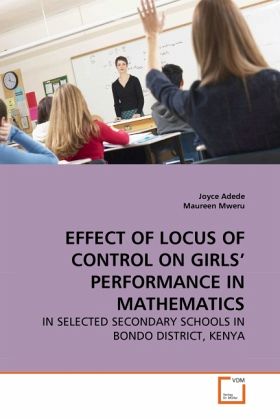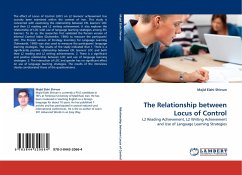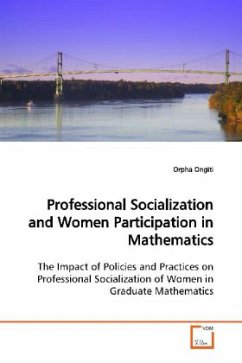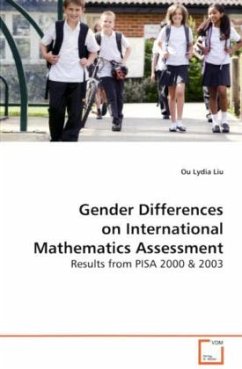
EFFECT OF LOCUS OF CONTROL ON GIRLS' PERFORMANCE IN MATHEMATICS
IN SELECTED SECONDARY SCHOOLS IN BONDO DISTRICT, KENYA
Versandkostenfrei!
Versandfertig in 6-10 Tagen
32,99 €
inkl. MwSt.

PAYBACK Punkte
16 °P sammeln!
One of the most intriguing phenomena in the education field has been the persistent differences in math achievement between boys and girls especially at high school level. Previous studies had attributed this to the learner's negative attitude among other factors. This book presents findings of a study that investigated how a student's locus of control interacted with other variables to consolidate the negative attitude leading to learned helplessness. Insight is provided into how the student's previous performance in math would lead to a particular attitude which interacted with the societal ...
One of the most intriguing phenomena in the education field has been the persistent differences in math achievement between boys and girls especially at high school level. Previous studies had attributed this to the learner's negative attitude among other factors. This book presents findings of a study that investigated how a student's locus of control interacted with other variables to consolidate the negative attitude leading to learned helplessness. Insight is provided into how the student's previous performance in math would lead to a particular attitude which interacted with the societal expectations rendering the student stereotypically vulnerable. The impact on future performance depended on the particular locus of control of the student. Suggestions are provided on how to nurture internal locus of control among children, also how to help those with learned helplessness overcome it. The findings are useful to mathematics teachers, teacher counselors and parents who may want to nurture internal locus of control in their children. Policy makers will also find the book useful in formulating programs in schools.












